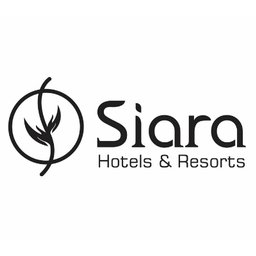Job Opportunities in India
September 11, 2024
Lord Krishna Cuisine Pvt Ltd
FULL TIME
Food Controller
Food Cost Management
· Target Setting: Set and monitor food cost targets based on menu pricing, portion sizes, and supplier contracts.
· Cost Analysis: Regularly analyze food costs and compare them with budgeted targets, identifying variances and implementing corrective actions.
· Cost Optimization: Develop strategies to optimize food costs without compromising quality, including menu engineering, recipe standardization, and waste reduction.
**2. Inventory Management
· Stock Levels: Maintain optimal stock levels to meet operational needs while minimizing excess inventory.
· Inventory Audits: Conduct regular and surprise audits of inventory to ensure accuracy and prevent pilferage.
· Supplier Management: Evaluate and negotiate with suppliers to secure the best prices and terms, ensuring quality and timely delivery.
**3. Data Reporting and Analysis
· Regular Reporting: Prepare and present weekly, monthly, and quarterly reports on food cost performance, including trends and areas of concern.
· Data Analysis: Analyze food cost data to identify patterns, inefficiencies, and opportunities for cost-saving measures.
· Benchmarking: Compare internal food cost data against industry standards and competitors to ensure competitiveness.
**4. Collaboration with Kitchen and Management
· Menu Planning: Work closely with the Executive Chef to develop cost-effective menus that align with market trends and customer preferences.
· Training and Development: Provide training to kitchen staff on portion control, waste management, and efficient use of ingredients.
· Cross-Departmental Coordination: Collaborate with the purchasing, finance, and operations teams to align food cost control measures with overall business goals.
**5. Compliance and Standards
· Regulatory Compliance: Ensure that food cost control practices comply with local health and safety regulations.
· Internal Policies: Develop and enforce internal policies related to inventory management, procurement, and cost control.
· Continuous Improvement: Regularly review and update food cost control procedures to reflect best practices and changes in the market.
**6. Technology and Systems Management
· Software Utilization: Utilize inventory and cost control software to track and manage food costs efficiently.
· System Updates: Ensure that all food cost data is accurately recorded in the system and regularly updated.
· Process Automation: Explore and implement technology solutions that can automate and streamline food cost control processes.
**7. Financial Accountability
· Budget Adherence: Monitor and ensure adherence to food cost budgets, providing explanations for any deviations.
· Cost Forecasting: Assist in preparing food cost forecasts for budgeting purposes, considering seasonal trends, menu changes, and supplier price fluctuations.
· Profitability Analysis: Contribute to profitability analysis by identifying cost-saving opportunities that do not compromise quality.
Job Type: Full-time
Pay: ₹30,000.00 - ₹40,000.00 per month
Experience:
Application Deadline: 25/09/2024
· Target Setting: Set and monitor food cost targets based on menu pricing, portion sizes, and supplier contracts.
· Cost Analysis: Regularly analyze food costs and compare them with budgeted targets, identifying variances and implementing corrective actions.
· Cost Optimization: Develop strategies to optimize food costs without compromising quality, including menu engineering, recipe standardization, and waste reduction.
**2. Inventory Management
· Stock Levels: Maintain optimal stock levels to meet operational needs while minimizing excess inventory.
· Inventory Audits: Conduct regular and surprise audits of inventory to ensure accuracy and prevent pilferage.
· Supplier Management: Evaluate and negotiate with suppliers to secure the best prices and terms, ensuring quality and timely delivery.
**3. Data Reporting and Analysis
· Regular Reporting: Prepare and present weekly, monthly, and quarterly reports on food cost performance, including trends and areas of concern.
· Data Analysis: Analyze food cost data to identify patterns, inefficiencies, and opportunities for cost-saving measures.
· Benchmarking: Compare internal food cost data against industry standards and competitors to ensure competitiveness.
**4. Collaboration with Kitchen and Management
· Menu Planning: Work closely with the Executive Chef to develop cost-effective menus that align with market trends and customer preferences.
· Training and Development: Provide training to kitchen staff on portion control, waste management, and efficient use of ingredients.
· Cross-Departmental Coordination: Collaborate with the purchasing, finance, and operations teams to align food cost control measures with overall business goals.
**5. Compliance and Standards
· Regulatory Compliance: Ensure that food cost control practices comply with local health and safety regulations.
· Internal Policies: Develop and enforce internal policies related to inventory management, procurement, and cost control.
· Continuous Improvement: Regularly review and update food cost control procedures to reflect best practices and changes in the market.
**6. Technology and Systems Management
· Software Utilization: Utilize inventory and cost control software to track and manage food costs efficiently.
· System Updates: Ensure that all food cost data is accurately recorded in the system and regularly updated.
· Process Automation: Explore and implement technology solutions that can automate and streamline food cost control processes.
**7. Financial Accountability
· Budget Adherence: Monitor and ensure adherence to food cost budgets, providing explanations for any deviations.
· Cost Forecasting: Assist in preparing food cost forecasts for budgeting purposes, considering seasonal trends, menu changes, and supplier price fluctuations.
· Profitability Analysis: Contribute to profitability analysis by identifying cost-saving opportunities that do not compromise quality.
Job Type: Full-time
Pay: ₹30,000.00 - ₹40,000.00 per month
Experience:
- total work: 3 years (Preferred)
Application Deadline: 25/09/2024
We regret to inform you that this job opportunity is no longer available
Latest Job Opportunities

October 19, 2024
Quincare Pharmaceuticals Private Limited
Medical Representative
Bankura
FULL TIME
View DetailsSimilar Jobs

August 20, 2024
Voyage Hotels & Resorts
Food Service Executive
Tinsukia
OTHER & FULL TIME
View Details
September 10, 2024
Soul Vacation Resort & Spa
Food and Beverage Associate
Colva
FULL TIME
View DetailsAugust 20, 2024
Gateway Institute of Hotel Management
Food and Beverage Service Faculty
FULL TIME
View DetailsSeptember 15, 2024
Wellversed
Production Coordinator, Food Production
OTHER & FULL TIME
View DetailsNew Jobs from This Company
September 22, 2024
Lord Krishna Cuisine Pvt Ltd
Grocery and store Purchase Executive
FULL TIME
View Details